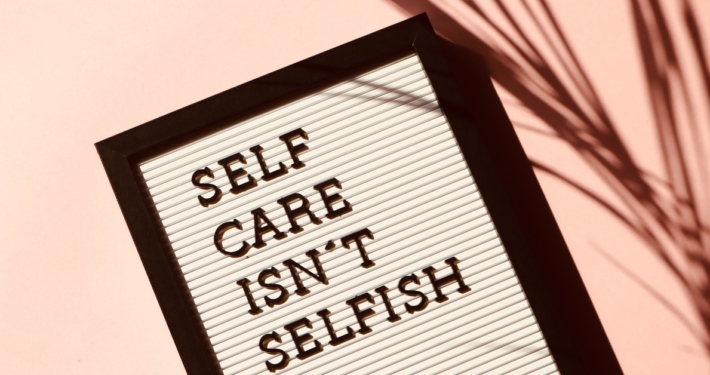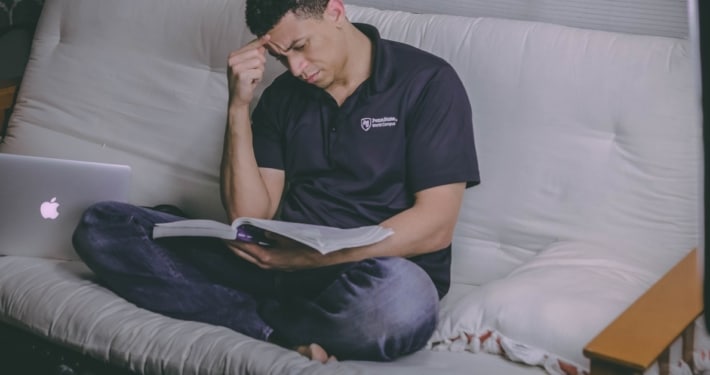 https://healthyfuturesaz.com/wp-content/uploads/2022/12/mindfulness-at-beach.jpg
720
1280
Sam Lee
https://healthyfuturesaz.com/wp-content/uploads/2021/12/healthy-futures-logo.svg
Sam Lee2022-12-22 10:55:412023-05-23 06:13:00A Minute of Mindfulness, at the ocean
https://healthyfuturesaz.com/wp-content/uploads/2022/12/mindfulness-at-beach.jpg
720
1280
Sam Lee
https://healthyfuturesaz.com/wp-content/uploads/2021/12/healthy-futures-logo.svg
Sam Lee2022-12-22 10:55:412023-05-23 06:13:00A Minute of Mindfulness, at the oceanHelping Strategies You Can Use at Home
 https://healthyfuturesaz.com/wp-content/uploads/2022/12/mindfulness-at-beach.jpg
720
1280
Sam Lee
https://healthyfuturesaz.com/wp-content/uploads/2021/12/healthy-futures-logo.svg
Sam Lee2022-12-22 10:55:412023-05-23 06:13:00A Minute of Mindfulness, at the ocean
https://healthyfuturesaz.com/wp-content/uploads/2022/12/mindfulness-at-beach.jpg
720
1280
Sam Lee
https://healthyfuturesaz.com/wp-content/uploads/2021/12/healthy-futures-logo.svg
Sam Lee2022-12-22 10:55:412023-05-23 06:13:00A Minute of Mindfulness, at the ocean
A Minute of Mindfulness with Mia – Why do we practice mindfulness?
We're going to do a sensory awareness exercise today that will help us be in the present moment.

A Minute of Mindfulness with Mia – Sensory Awareness
We're going to do a sensory awareness exercise today that will help us be in the present moment.

A Minute of Mindfulness with Mia – Think of a Word
Mindfulness is a great return to the moment because we can find whatever we need in that moment.

A Minute of Mindfulness with Mia
Hello, welcome to another minute of mindfulness with Mia and at the ocean!

A Minute of Mindfulness with Mia – Doing What You Can
Today we're going to talk about doing what you can do versus what you can't.

A Minute of Mindfulness with Mia – Loving Kindness
Loving-kindness meditations are all about allowing ourselves to have the things like joy and happiness in our life.

Advice to your adolescent self
If I was able to give advice to my adolescent self, this is what I would say.

A Minute of Mindfulness with Mia – Perspective
Today I thought we'd focus on perspective and the idea of helping us feel better and more mindful is to focus on perspective.

Post traumatic growth and how to benefit from trauma
Trauma doesn't need to be a life sentence. There are benefits to trauma and all of us in this world.

Self Care is not selfish
I'm encouraging people not to be self-centered but to be selfish in that they are a priority.

Harnessing the Power of Attention
Attention, it's an act of paying attention to something that is happening in the world around you.

How curiosity can give you a mental and physical boost
Curiosity is great to use for mental health. First of all, everybody can access it and doesn't take any extra effort or any extra power.

Progressive Relaxation: Let the beam of light help you unwind
Relaxing does not always come easy to everyone. Dr. Kim DiRé shares a technique called progressive relaxation that she uses to help create a state of relaxation and equilibrium for your nervous system.

Self-correct your thinking errors with mindfulness
Did you know your brain never stops thinking? It is true, however most people do not pay attention to their thoughts on a regular basis. With mindfulness, though, we learn to pay attention to our thoughts and our emotions as well as the way we interpret things.

Conquer shame in no time with these basic steps
What is your first memory have shame? Perhaps it is from childhood after being placed in your first time-out. Or maybe you remember it more clearly in your teenage years. Whatever it may be, shame is a feeling we all struggle with and it is essential that we learn about overcoming shame and the steps to take to recover from it.

Simple tips for managing eating disorders during the Holidays
For individuals and families struggling with eating disorders, the holidays can be a particularly difficult time of year. There are expectations, family members who say the wrong things, and celebrations that focus on a meal.

Ease your anxiety by “observing without taking action”
If you struggle with unhealthy behaviors, try a different technique. Imagine you have an itch. Feeling that itch now? Now, don't scratch it! Instead, pause and think about it. Observe and describe the itch.

Reduce stress by listening to your body
Take a moment each day to listen to your body. Pause, take a deep breath and really listen. What is your body telling you? Do you feel tight? Do you feel the weight of stress on your shoulders? Do you feel rigid or stuck? Does it feel like you are almost holding your breath?

Why simple shifts in behavior can improve emotional control
Emotions and behaviors go together. Feel fear, take flight. Feel angry, put up a fight. This works great to regulate our emotions when our emotions are justified. The cycle is complete and we come back to a balance. But, what do we do when we feel an emotion like fear, and there is no threat?

A Minute of Mindfulness, at the ocean
Welcome to another Minute of Mindfulness with Mia. Today, we're at the ocean!

A Minute of Mindfulness with Mia – Why do we practice mindfulness?
We're going to do a sensory awareness exercise today that will help us be in the present moment.

A Minute of Mindfulness with Mia – Sensory Awareness
We're going to do a sensory awareness exercise today that will help us be in the present moment.

A Minute of Mindfulness with Mia – Think of a Word
Mindfulness is a great return to the moment because we can find whatever we need in that moment.

A Minute of Mindfulness with Mia
Hello, welcome to another minute of mindfulness with Mia and at the ocean!

A Minute of Mindfulness with Mia – Doing What You Can
Today we're going to talk about doing what you can do versus what you can't.

A Minute of Mindfulness with Mia – Loving Kindness
Loving-kindness meditations are all about allowing ourselves to have the things like joy and happiness in our life.

Advice to your adolescent self
If I was able to give advice to my adolescent self, this is what I would say.

A Minute of Mindfulness with Mia – Perspective
Today I thought we'd focus on perspective and the idea of helping us feel better and more mindful is to focus on perspective.

Post traumatic growth and how to benefit from trauma
Trauma doesn't need to be a life sentence. There are benefits to trauma and all of us in this world.

Self Care is not selfish
I'm encouraging people not to be self-centered but to be selfish in that they are a priority.

Harnessing the Power of Attention
Attention, it's an act of paying attention to something that is happening in the world around you.

How curiosity can give you a mental and physical boost
Curiosity is great to use for mental health. First of all, everybody can access it and doesn't take any extra effort or any extra power.

Progressive Relaxation: Let the beam of light help you unwind
Relaxing does not always come easy to everyone. Dr. Kim DiRé shares a technique called progressive relaxation that she uses to help create a state of relaxation and equilibrium for your nervous system.

Self-correct your thinking errors with mindfulness
Did you know your brain never stops thinking? It is true, however most people do not pay attention to their thoughts on a regular basis. With mindfulness, though, we learn to pay attention to our thoughts and our emotions as well as the way we interpret things.

Conquer shame in no time with these basic steps
What is your first memory have shame? Perhaps it is from childhood after being placed in your first time-out. Or maybe you remember it more clearly in your teenage years. Whatever it may be, shame is a feeling we all struggle with and it is essential that we learn about overcoming shame and the steps to take to recover from it.

Simple tips for managing eating disorders during the Holidays
For individuals and families struggling with eating disorders, the holidays can be a particularly difficult time of year. There are expectations, family members who say the wrong things, and celebrations that focus on a meal.

Ease your anxiety by “observing without taking action”
If you struggle with unhealthy behaviors, try a different technique. Imagine you have an itch. Feeling that itch now? Now, don't scratch it! Instead, pause and think about it. Observe and describe the itch.

Reduce stress by listening to your body
Take a moment each day to listen to your body. Pause, take a deep breath and really listen. What is your body telling you? Do you feel tight? Do you feel the weight of stress on your shoulders? Do you feel rigid or stuck? Does it feel like you are almost holding your breath?

Why simple shifts in behavior can improve emotional control
Emotions and behaviors go together. Feel fear, take flight. Feel angry, put up a fight. This works great to regulate our emotions when our emotions are justified. The cycle is complete and we come back to a balance. But, what do we do when we feel an emotion like fear, and there is no threat?
Healthy Futures
8065 N. 85th Way
Scottsdale, AZ 85258
Phone: (480) 451-8500
Fax: (Call office for number)
Empact Crisis Line: (480) 784-1500
Banner Help Line: (602) 254-4357
Office Hours
Mon – Thurs: 9:00AM – 6:00PM
Fri: 9:00AM – 4:00PM
Recent Videos & Articles
 Minute of Mindfulness with Mia – Radical Acceptance and Circle BreathingDecember 7, 2023 - 12:17 pm
Minute of Mindfulness with Mia – Radical Acceptance and Circle BreathingDecember 7, 2023 - 12:17 pm A Minute of Mindfulness Breathe In, Breathe OutMay 23, 2023 - 9:56 am
A Minute of Mindfulness Breathe In, Breathe OutMay 23, 2023 - 9:56 am Mia Elwood’s Acceptance Speech for the Lifetime Achievement AwardMay 10, 2023 - 10:53 am
Mia Elwood’s Acceptance Speech for the Lifetime Achievement AwardMay 10, 2023 - 10:53 am A Minute of Mindfulness, at the oceanDecember 22, 2022 - 10:55 am
A Minute of Mindfulness, at the oceanDecember 22, 2022 - 10:55 am